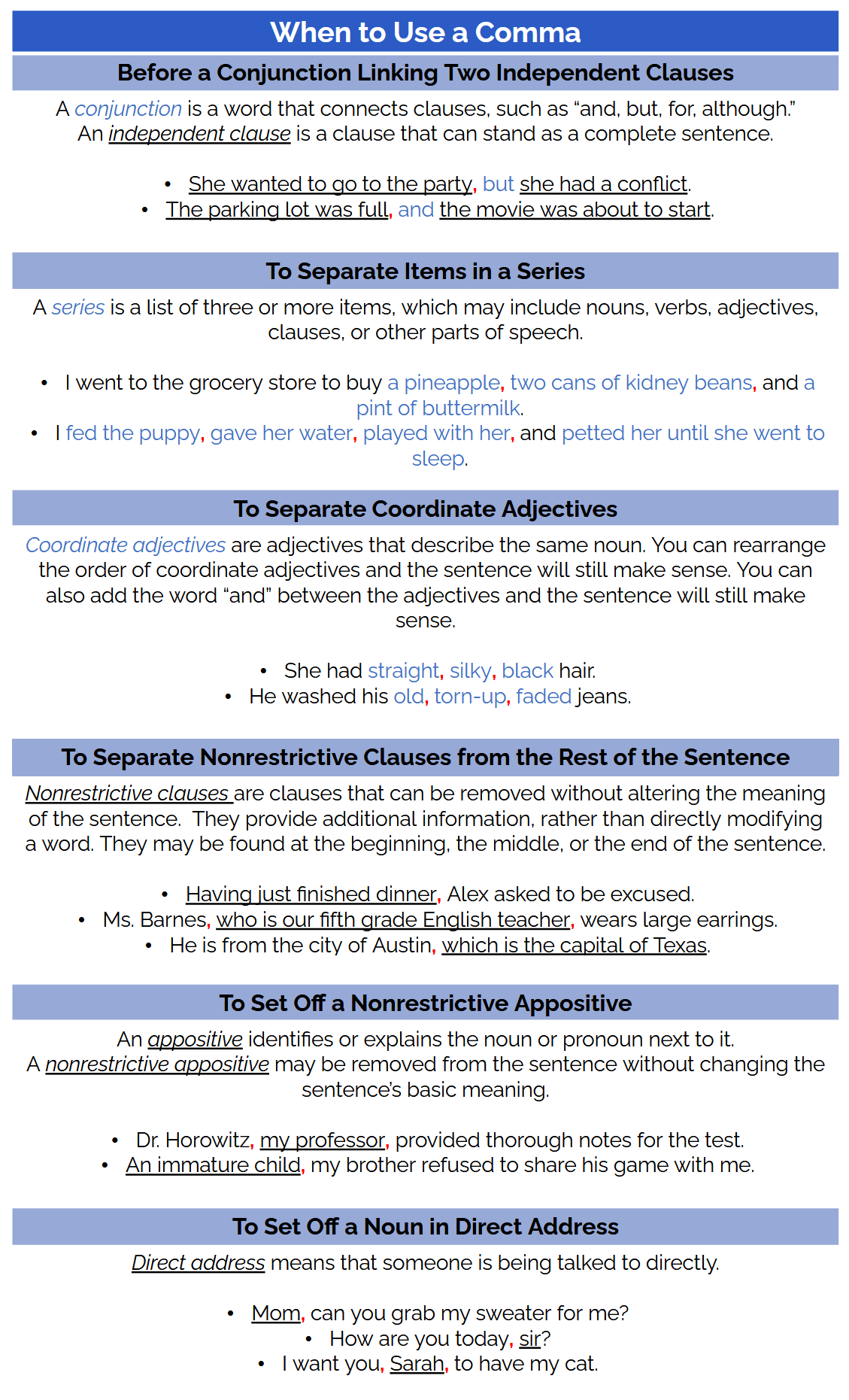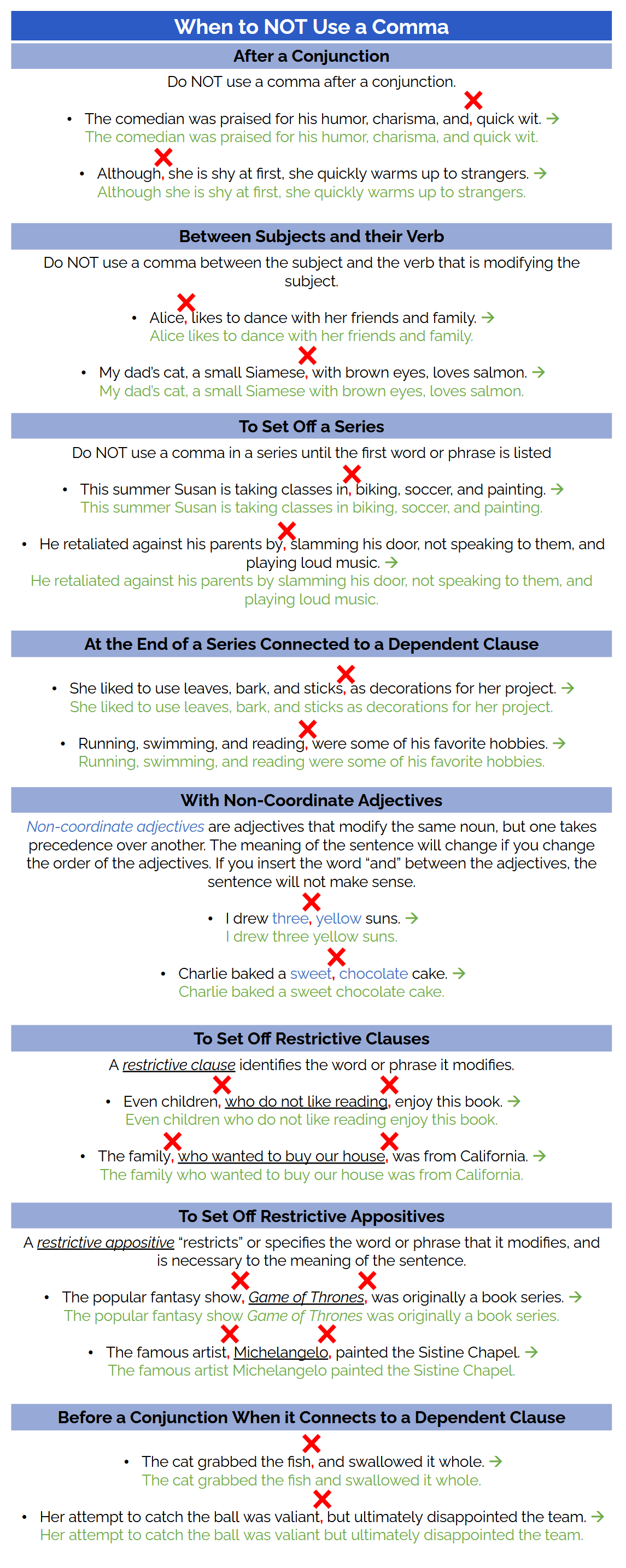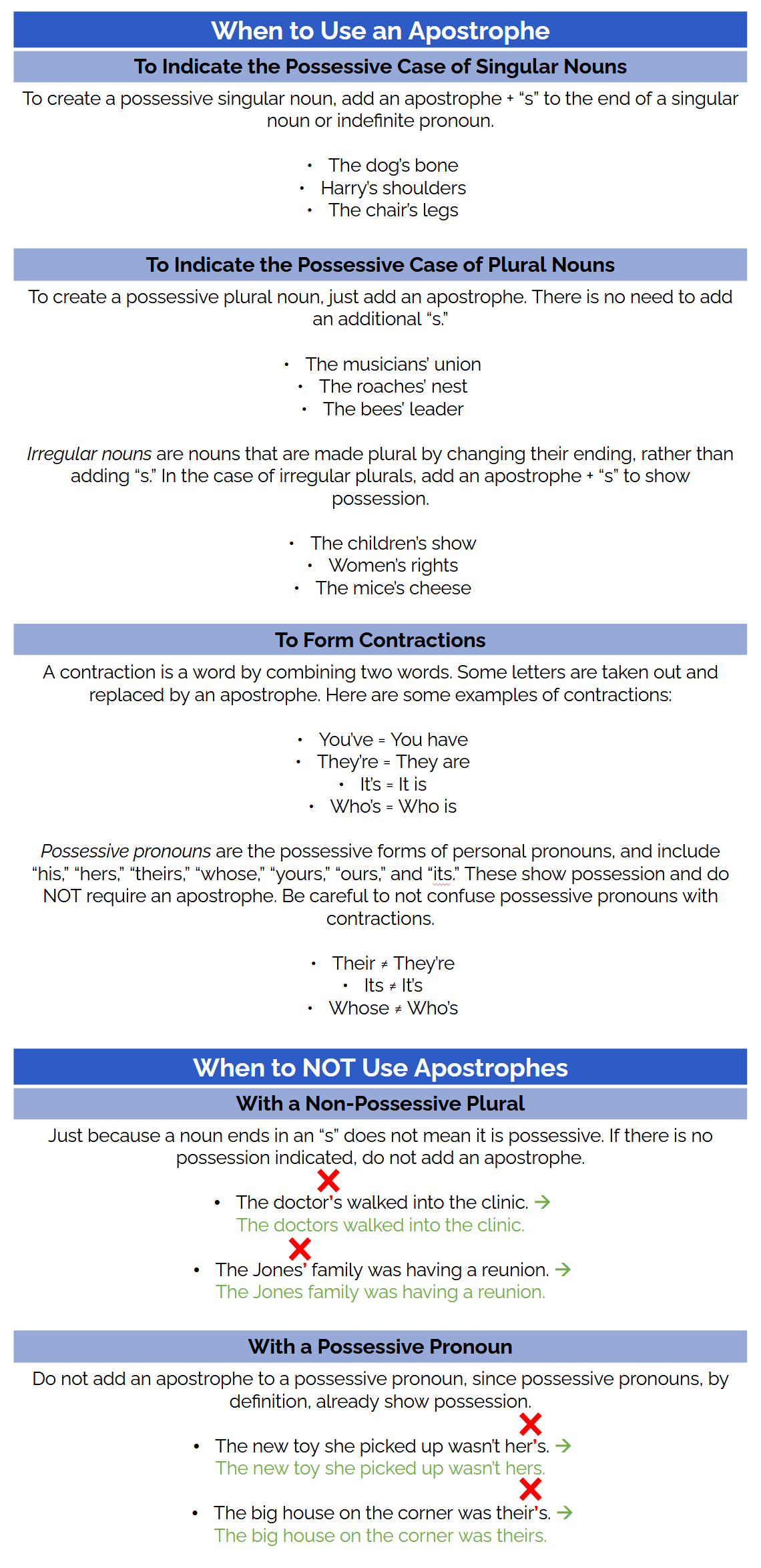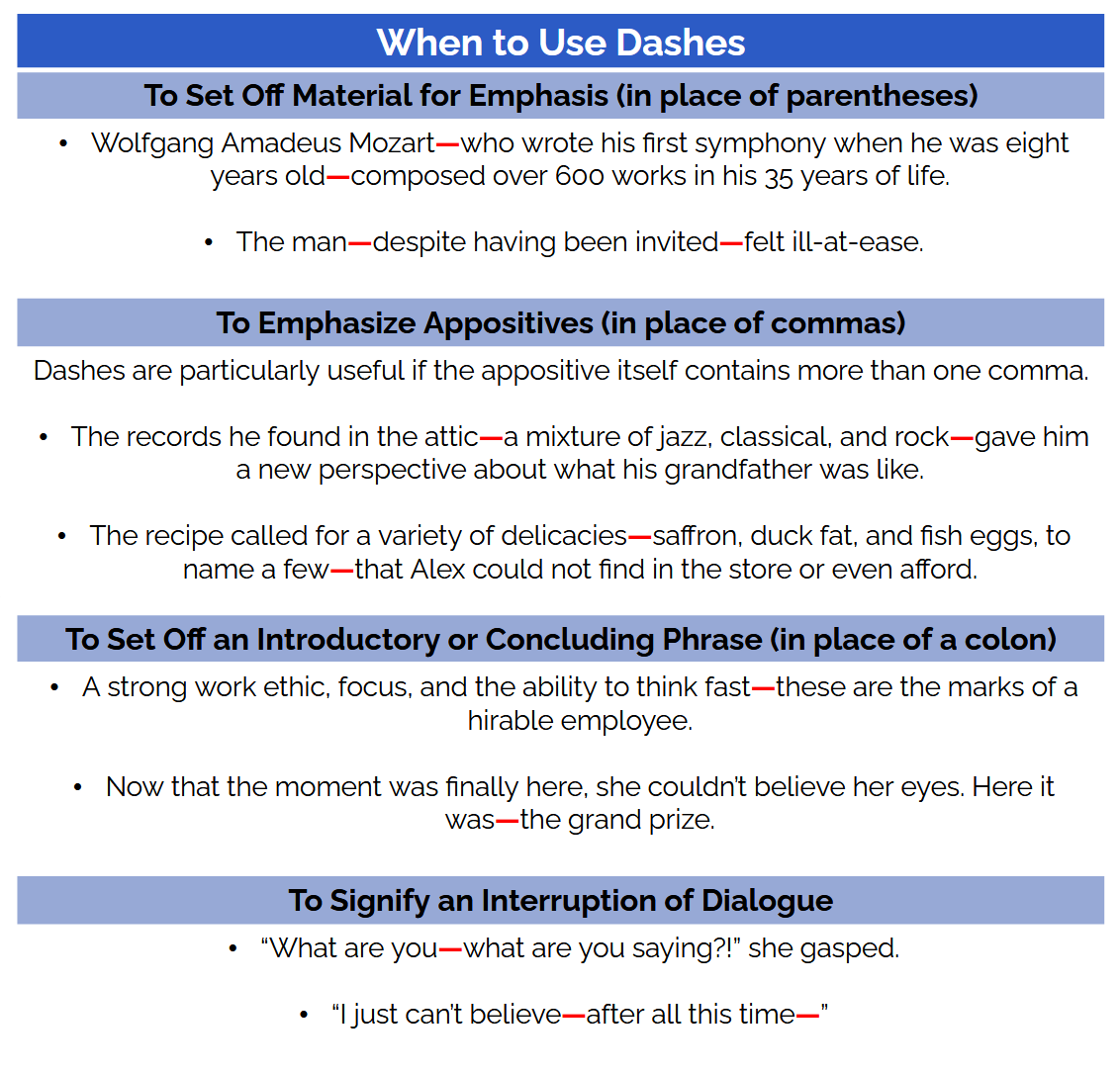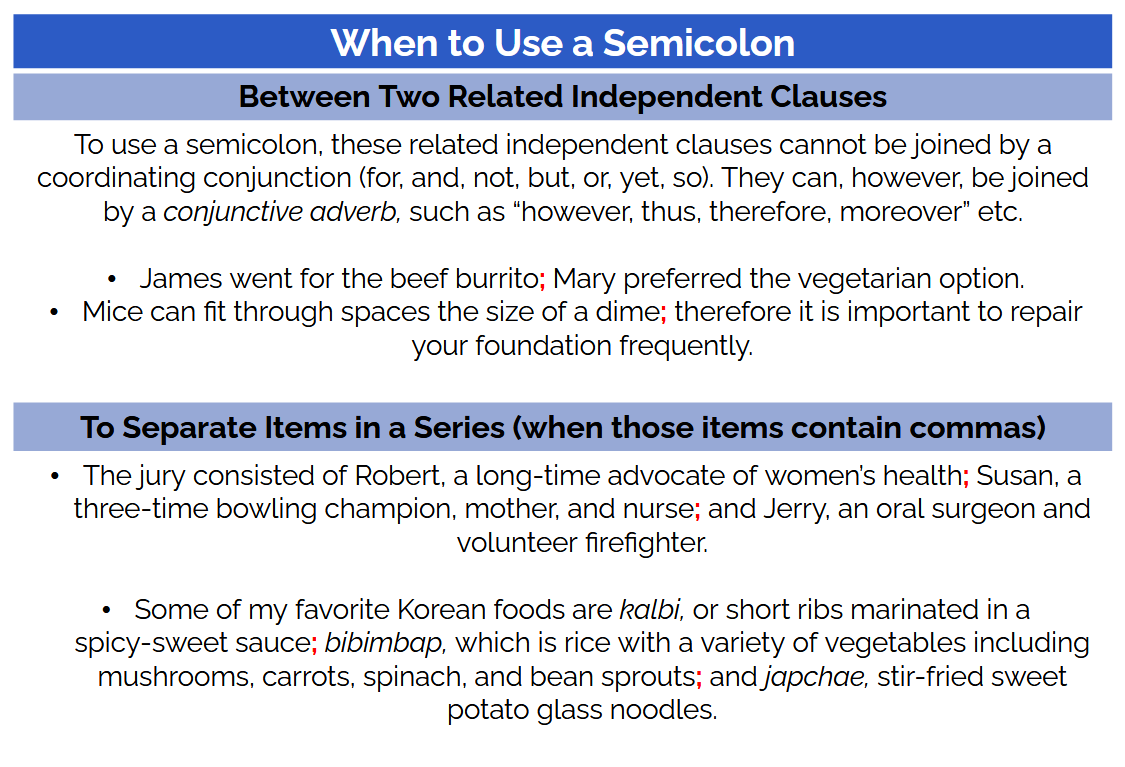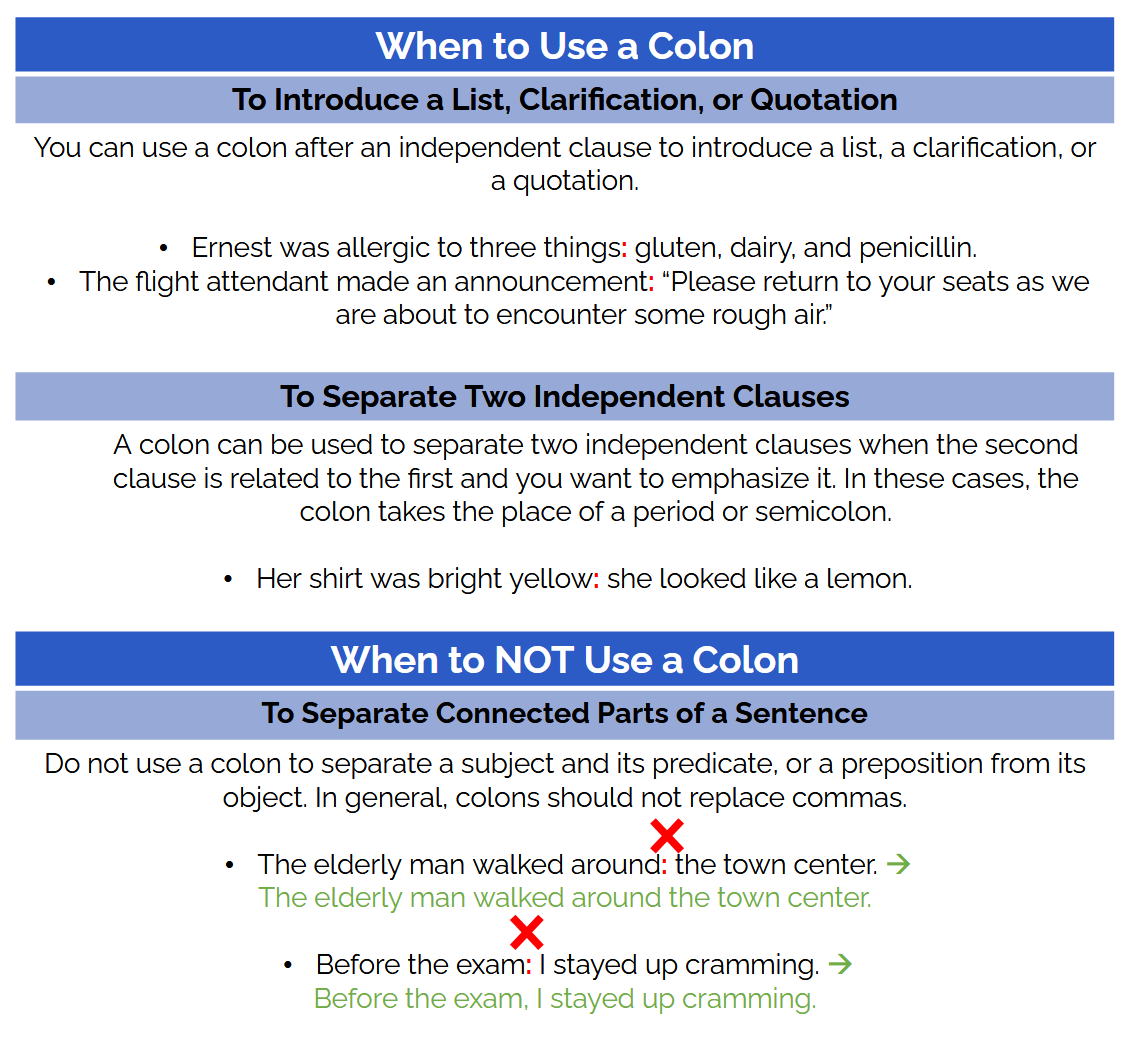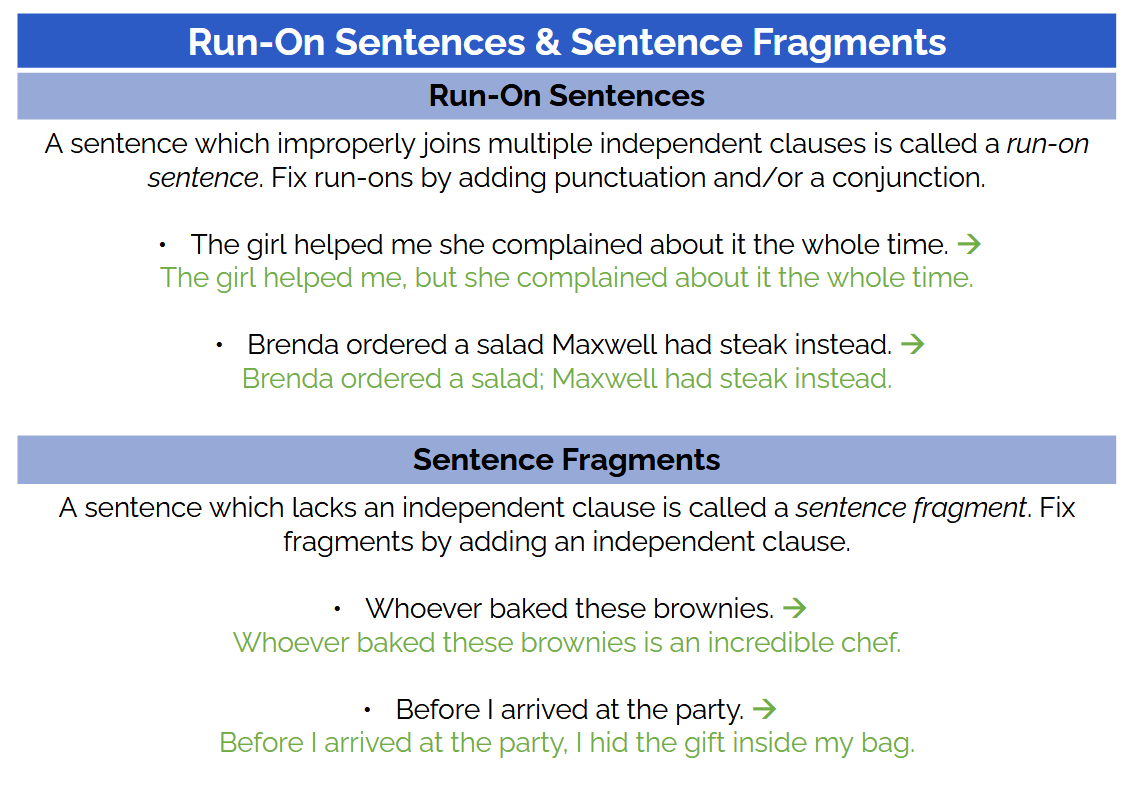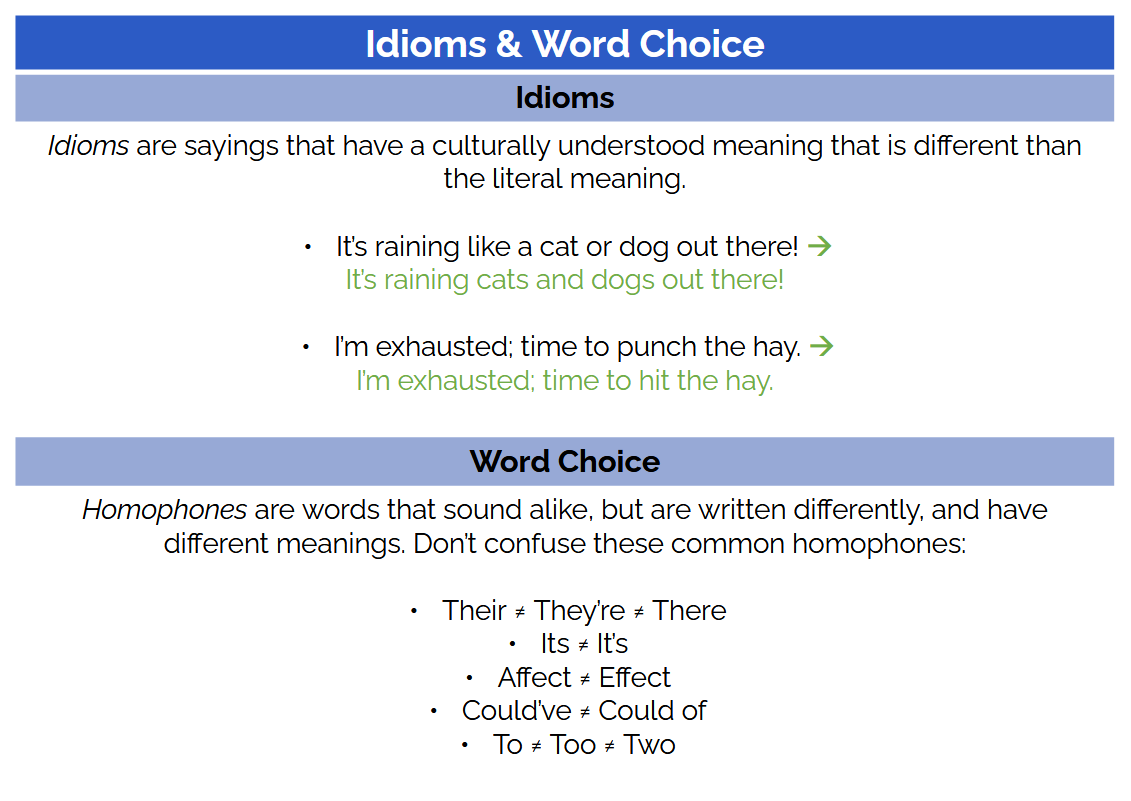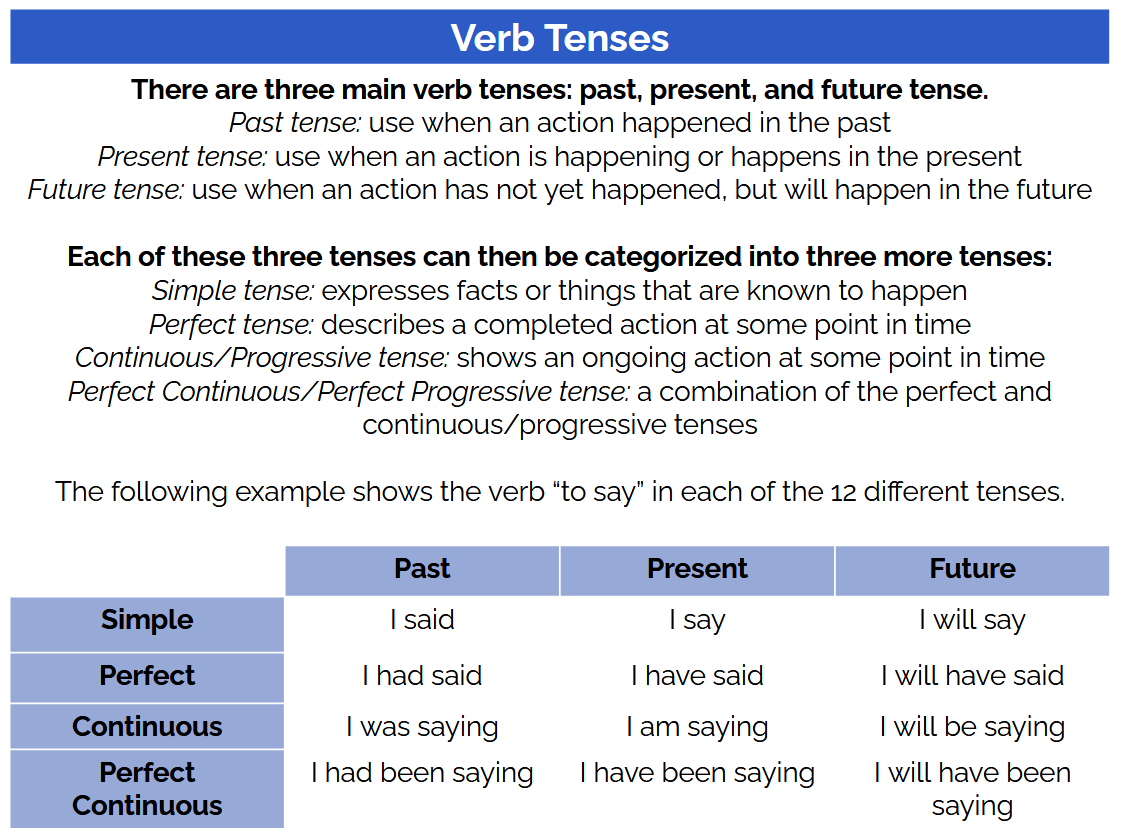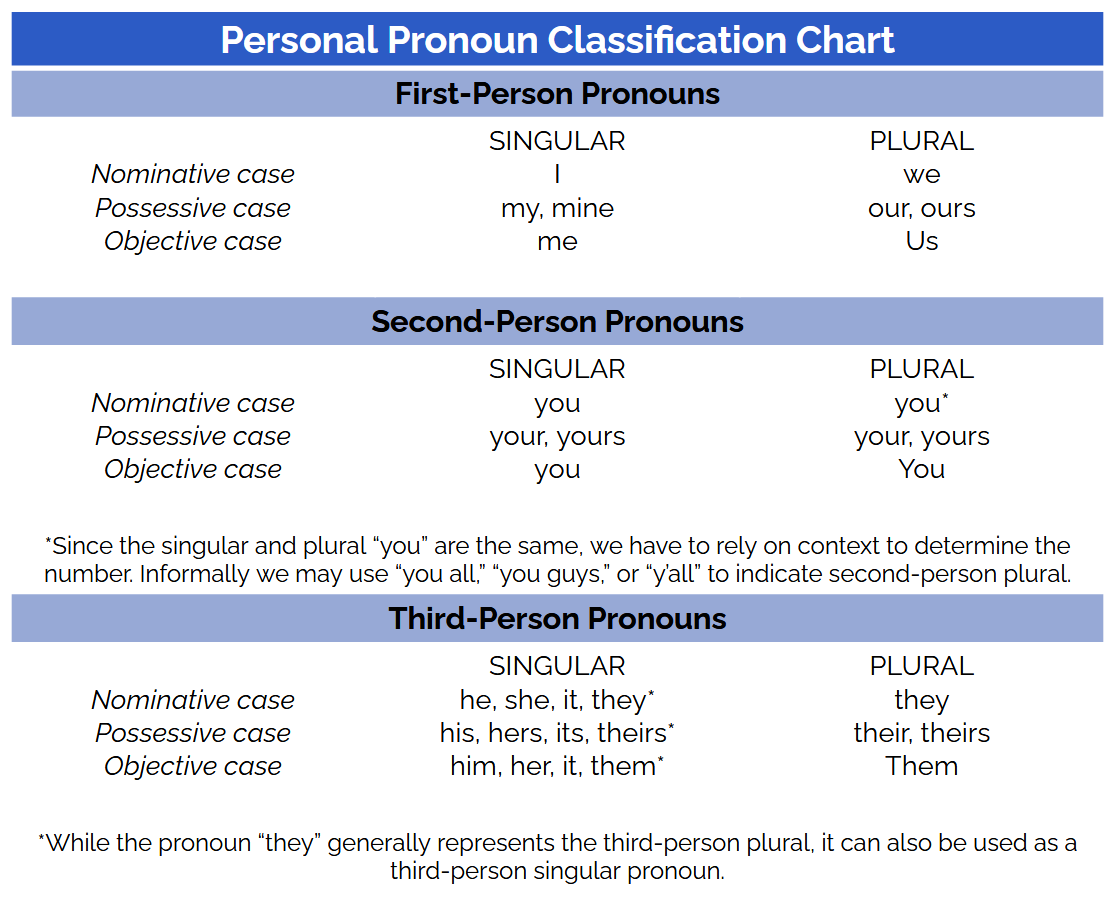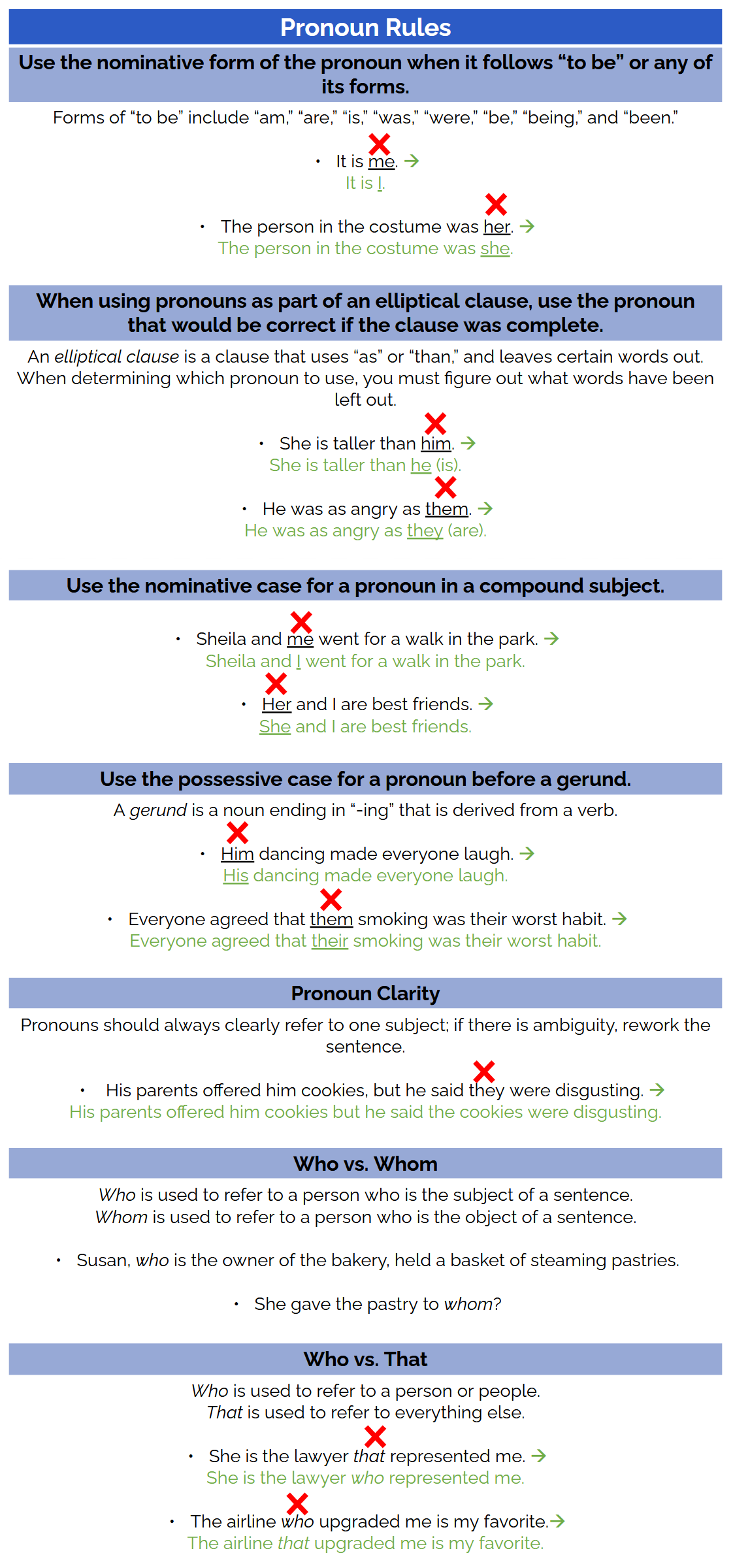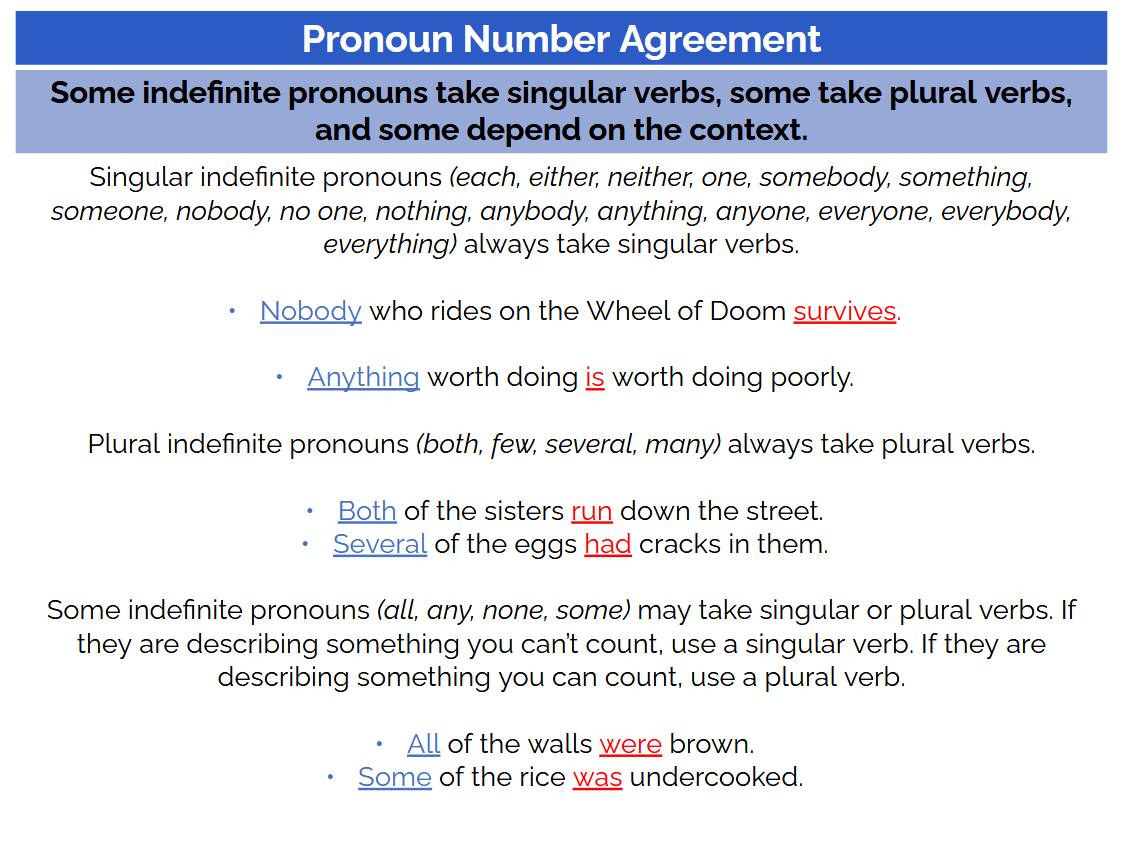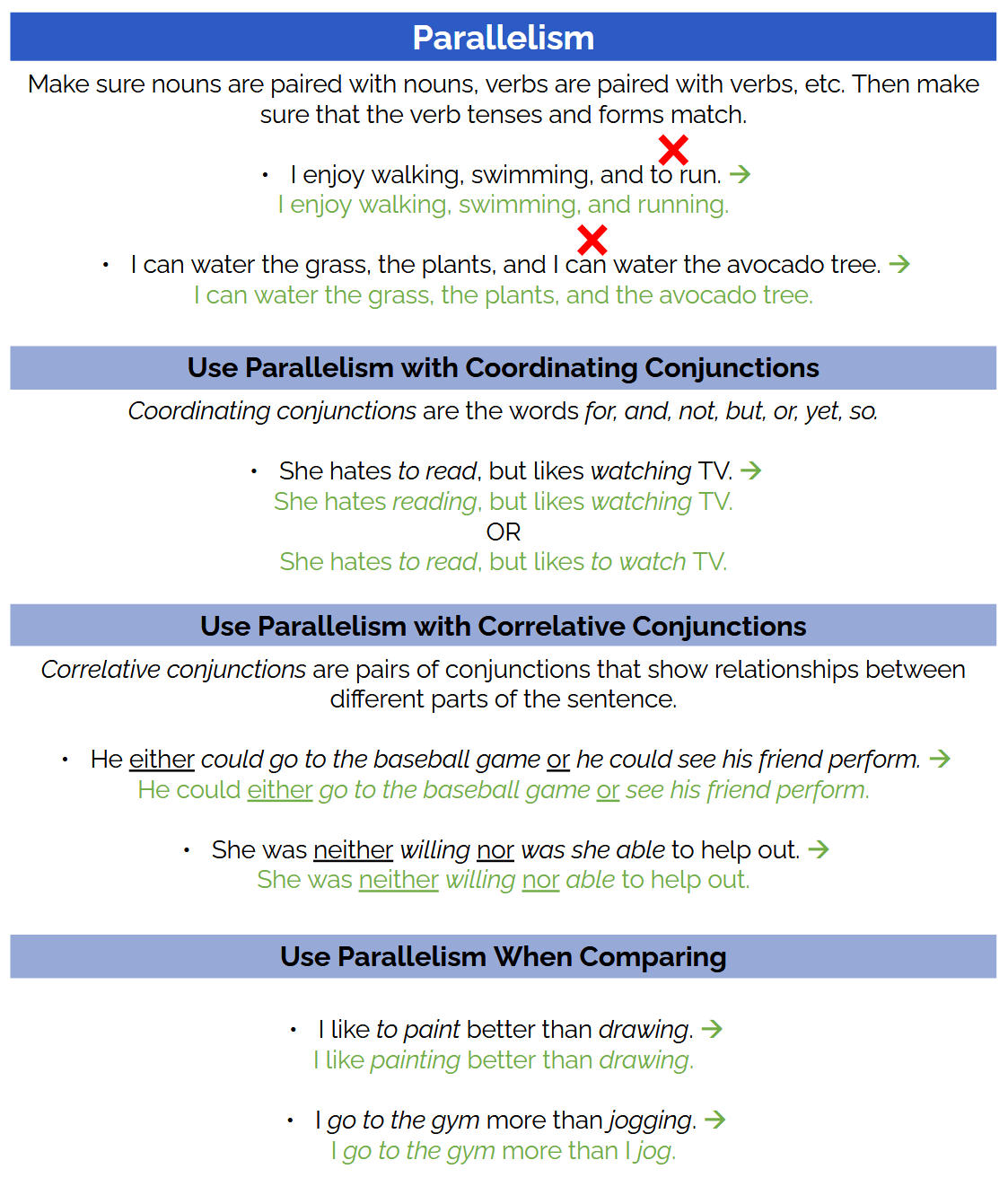
If you’ve taken the ACT English section before and are planning to take it again, it’s wise to use some of your study time for ACT Grammar practice. Practicing the Grammar and Rhetoric skills that appear on the ACT English test can maximize your strategic advantage and help improve your ACT English score.
This article reviews the most important grammar and rhetoric skills you will need to know to get a great score on the ACT English test.
Looking for more great ACT English study advice? Check out our article on ACT English Strategies. If you’re looking for test-taking strategies beyond the ACT English section, make sure to read our full guide to ACT Test Strategies and our close look at How to Improve Your ACT Score.
A Quick Overview of the ACT English Test
The ACT English test is a 75-question, 45-minute test that consists of five passages, each followed by 15 related multiple-choice questions that test your understanding of common conventions of standard English. You won’t be asked questions that directly test your comprehension of the material in each passage; instead, your role is closer to that of an editor.
There are two categories of skills you will need to master for ACT Grammar Practice, Grammar and Rhetoric. The split is fairly even, with grammar skills making up slightly over 50% of the material.
Some questions will ask you to correct grammar and usage errors: they will refer to underlined portions of the passage and offer several alternatives, from which you must choose the most appropriate option. Other questions will ask you more broadly about the function or placement of an underlined portion, a section of the passage, or the passage as a whole.
Grammar
The ACT English section tests 9 grammar skill areas, but remember: not all skills are tested equally. For your convenience, we have organized the list of grammar skills below by the average frequency (from high to low) in which they appear on ACT English tests:
- Punctuation Usage
- Run-On Sentences & Sentence Fragments
- Idioms & Word Choice
- Verb Tenses and Conjugations
- Pronoun Usage
- Subject/Verb Agreement & Pronoun Number Agreement
- Parallelism
- Modifier Agreement & Placement
- Comparison & Description
Punctuation Usage – Commas, Apostrophes, Dashes, Semicolons, and Colons
Many of the questions on the ACT English test will ask you to choose the correct punctuation for a sentence from among several choices. To answer these correctly, you should be very familiar with the proper usage of commas, apostrophes, dashes, semicolons, and colons. When you’re doing your ACT Grammar practice, pay special attention to comma usage rules; on average, half of the punctuation questions on the ACT English section concern commas.
Run-On Sentences & Sentence Fragments
Sentences are made up of clauses which contain both a subject and a verb. There are two main types of clauses: independent clauses and dependent clauses. (You may have also heard of relative clauses and noun clauses, but these are both types of dependent clauses.)
An independent clause is a clause that can stand on its own as a complete sentence. A dependent clause is a clause that cannot stand on its own; you must attached it to an independent clause in order to create a complete sentence.
Idioms & Word Choice
Some of the questions on the ACT English section require you to know of and correct errors within common idioms. Other questions will ask you to choose the correct option from among similar-sounding words.
Verb Tenses and Conjugations
Some of the errors you will be responsible for finding and correcting on the ACT English section relate to verb tenses and conjugations. In general, verbs in the same sentence should all be in the same tense.
Pronoun Usage
Pronouns are very useful; they take the place of nouns and can help make writing flow more smoothly. But, if used incorrectly they can make writing much more confusing! The ACT English test will definitely have some questions requiring you to know about proper pronoun usage, so make sure your ACT Grammar practice includes a pronoun review.
Subject/Verb Agreement & Pronoun Number Agreement
A common writing error that the ACT English section will test your ability to correct is improper subject-verb agreement. A related error is improper pronoun number agreement. Remember, if the subject is singular, the verb must also be in the singular form; if the subject is plural, the verb needs to be, too!
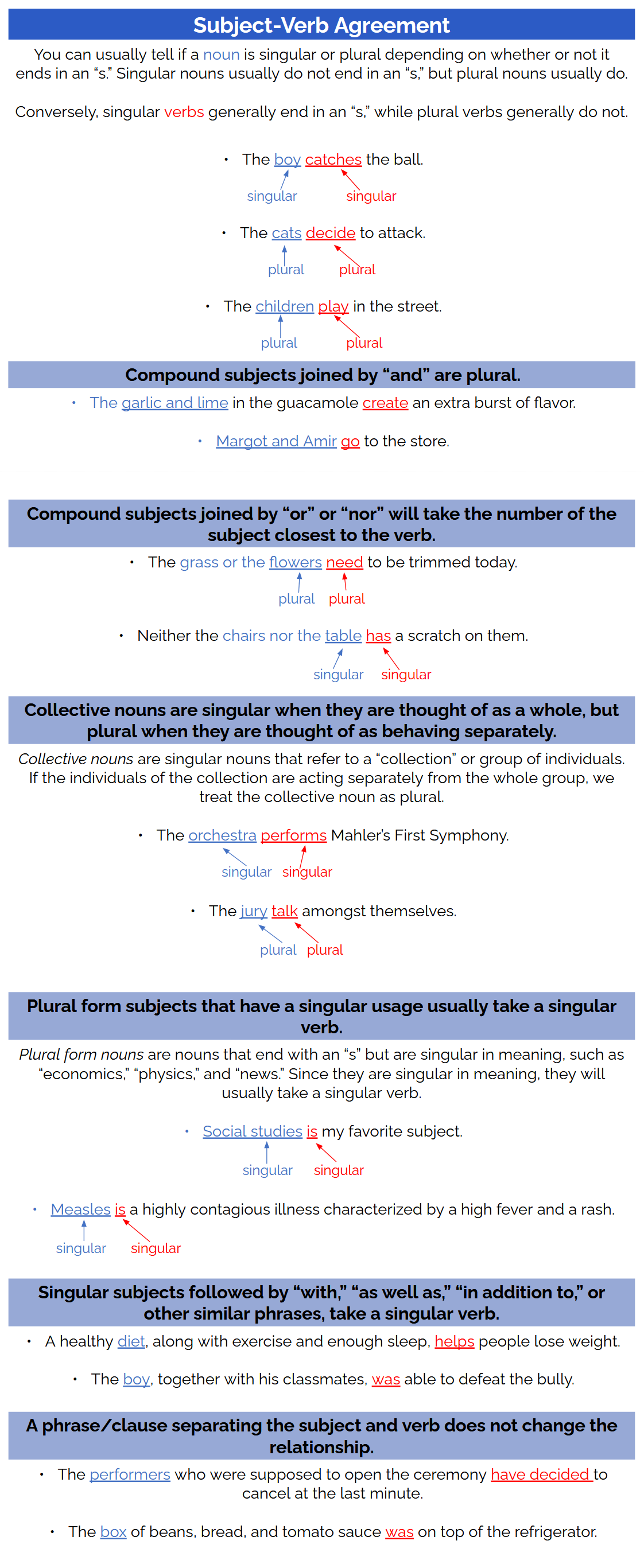
Parallelism
Parallelism (sometimes called Parallel Construction) is the practice of keeping a consistent structure when your writing includes a list of items, phrases, or clauses. Proper usage of parallelism makes writing flow more smoothly; on the ACT English test you may be asked to correct faulty parallelism, so make sure to include this topic in your ACT grammar practice.
Modifier Agreement & Placement
The ACT English section will test your ability to locate and fix errors of modifier agreement and placement. They are sometimes hard to catch because we often use faulty modifiers when speaking. In written English, however, errors in modifier usage can cause significant confusion. A quick review of common modifier errors is essential to your ACT Grammar practice.
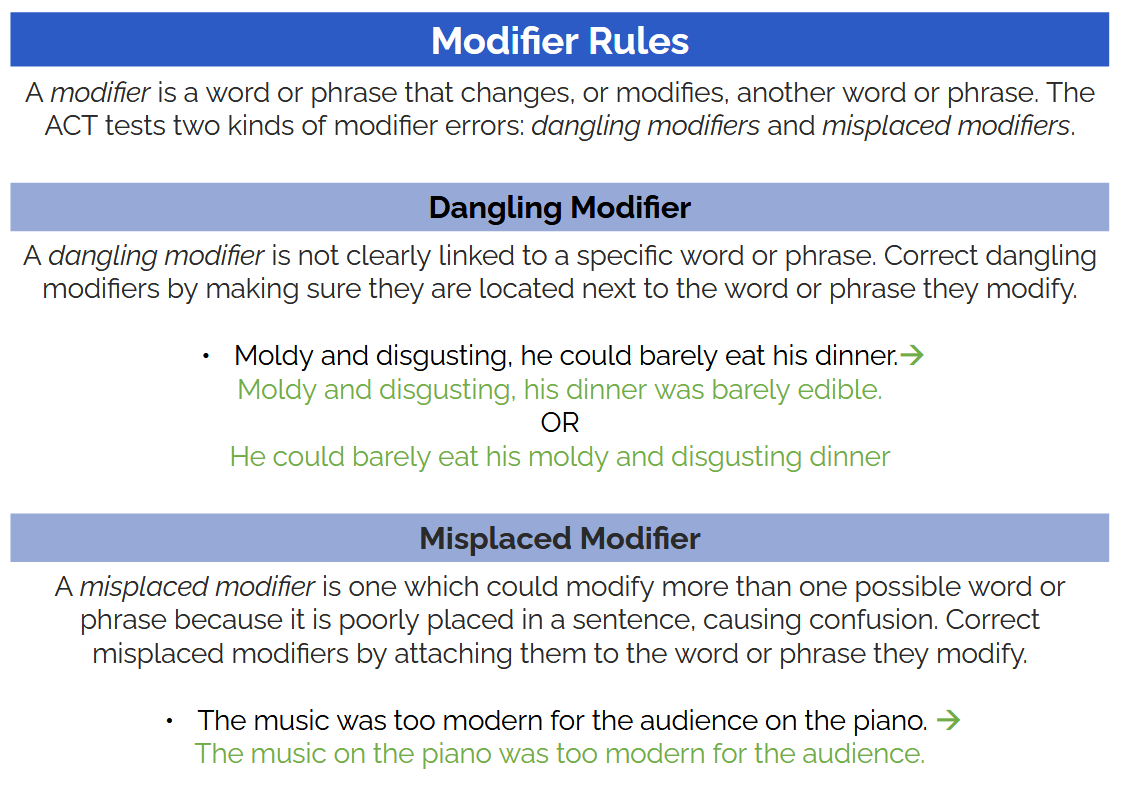
Comparison & Description
Although this grammar skill area is the least-frequently tested on the ACT, it’s still an important skill to master! The ACT will primarily ask you questions about the difference in language when you describe comparisons between two things versus comparing three or more things.

Need a breather from ACT Grammar Practice? Wondering if all this ACT prep is worth it? Read Piqosity’s deep-dive article that seeks to answer: Do the ACT and SAT Standardized Tests Still Matter?
Rhetoric
Although students tend to think of grammar when preparing for the ACT English test, it’s important not to neglect studying rhetorical skills, as they comprise just under half of the tested material. Most of the rhetoric questions will ask you to examine the language and structure of a passage, rather than fix individual errors of word choice or grammar. There are 5 rhetoric skill areas tested on the ACT English section, listed by the average frequency (from high to low) in which they appear on ACT English tests:
Transitional Logic
The most frequently asked rhetoric questions on the ACT English section deal with Transitional Logic, or how different ideas, phrases, or sentences are connected within a passage. The most helpful way to review this concept is to make sure you are familiar with the different types and functions of common transitional words.

Relevance & Wordiness
Sometimes, you will be asked to select the best choice from among a collection of sentences, all of which may convey similar ideas. In those cases, you will want to choose the clearest and most relevant sentence which does not include any extraneous information.
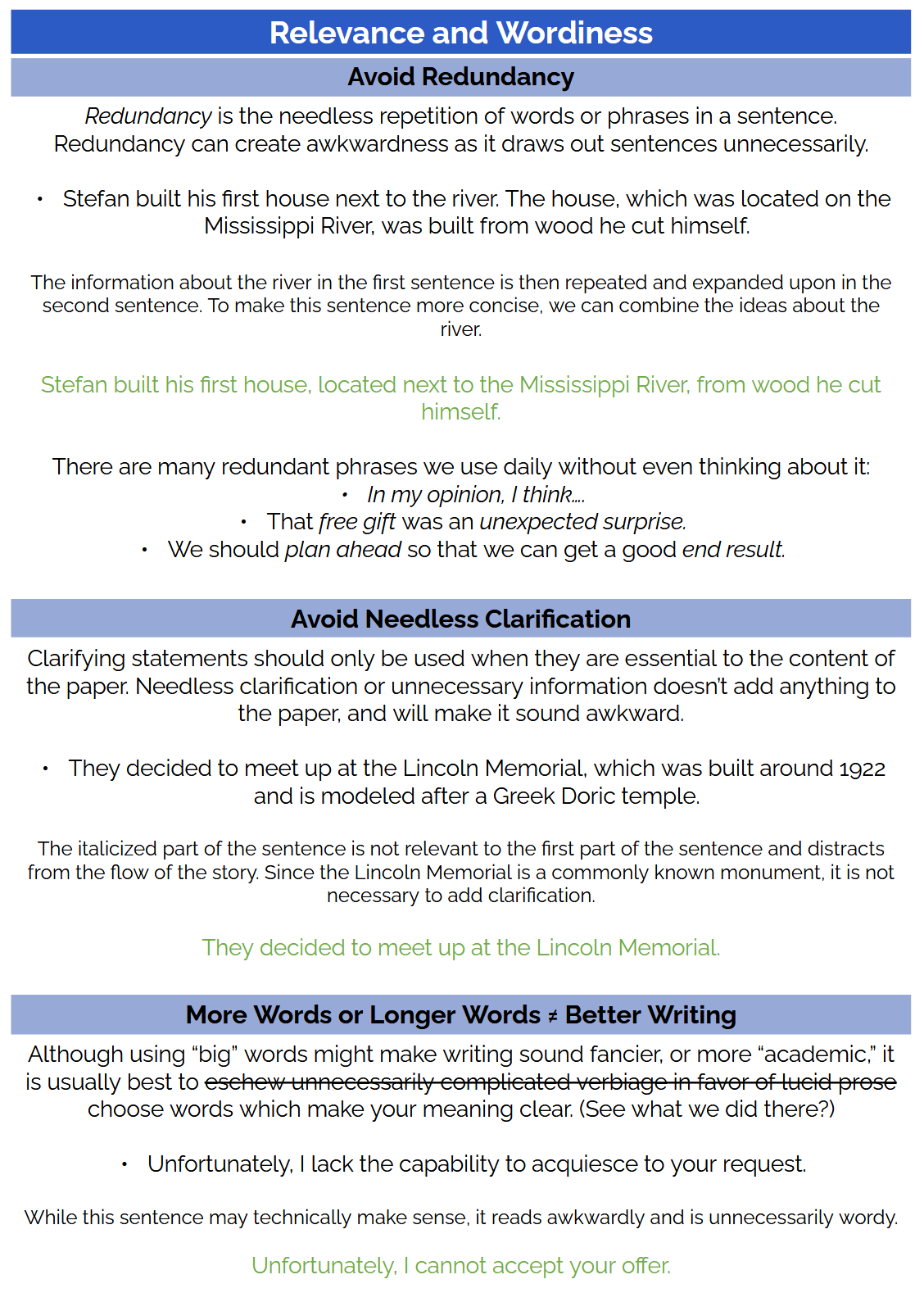
Macro Logic
The ACT English section will also ask you about how an author organized a particular passage, or how they chose to connect sentences and paragraphs. This is referred to as Macro Logic. Frequently, these questions will ask you to determine the best placement for a new sentence. Similarly, they may ask you to determine which sentence can be deleted from a particular paragraph. When considering sentence additions or subtractions, it’s helpful to keep the following advice in mind.
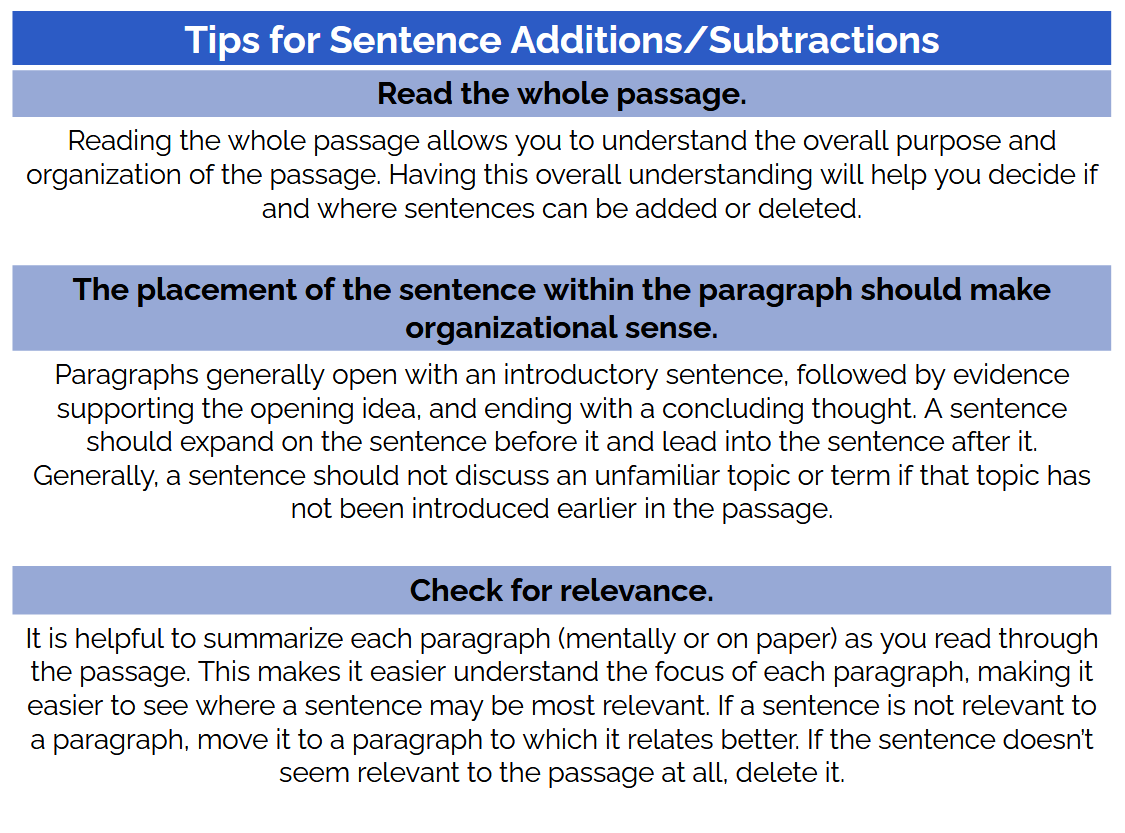
Author’s Intention
Another type of ACT English question focuses on the Author’s Intention in a particular passage. The ACT might ask you to summarize an author’s intention, to choose the sentence which best follows it, or to remove a sentence which contradicts it. It may be useful to review the distinction between the topic and purpose of a piece of writing, and to understand the importance of emphasis. You will want to make sure that your answers stay on-topic, do not deviate from the author’s purpose, and emphasize points the author has already made or ideas which further support those points.
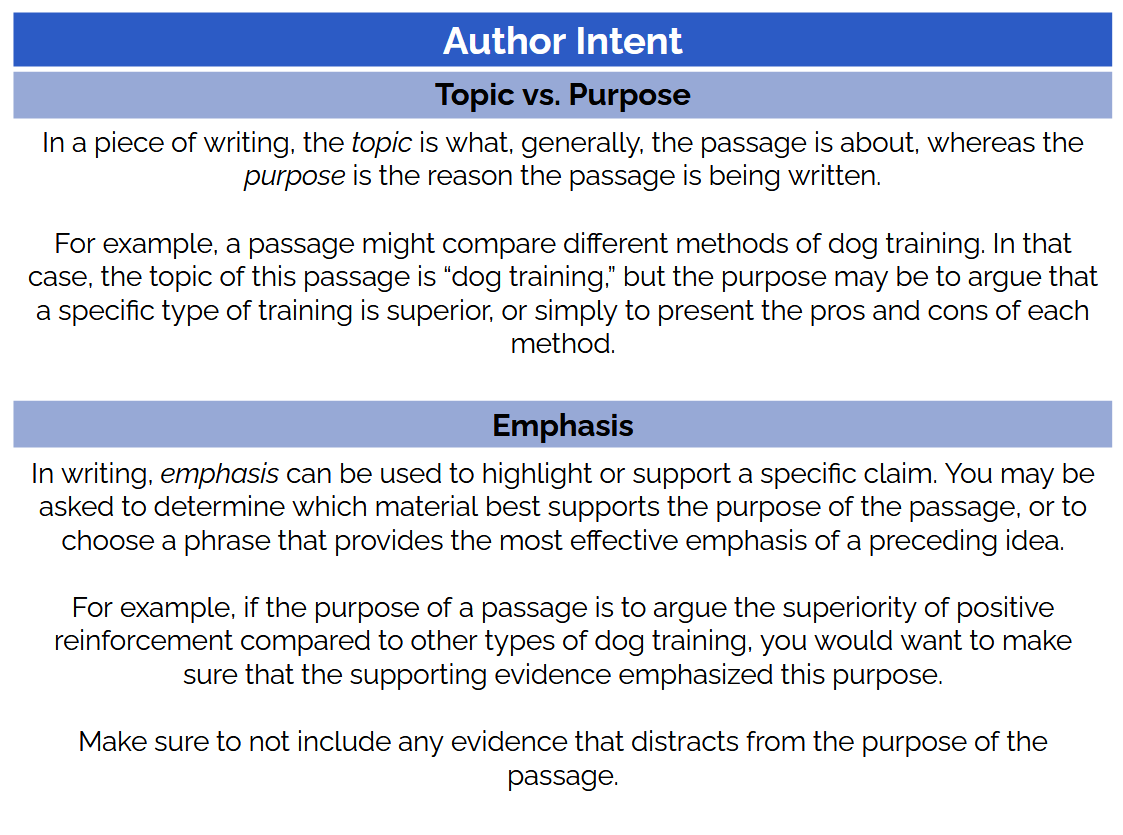
Formality & Tone
The final rhetoric skill area tested on the ACT English section deals with Formality & Tone. The test may ask you to choose a sentence that best matches the tone of a paragraph. Conversely, it may ask you to remove a sentence which does not match the formality of the rest of the paragraph.
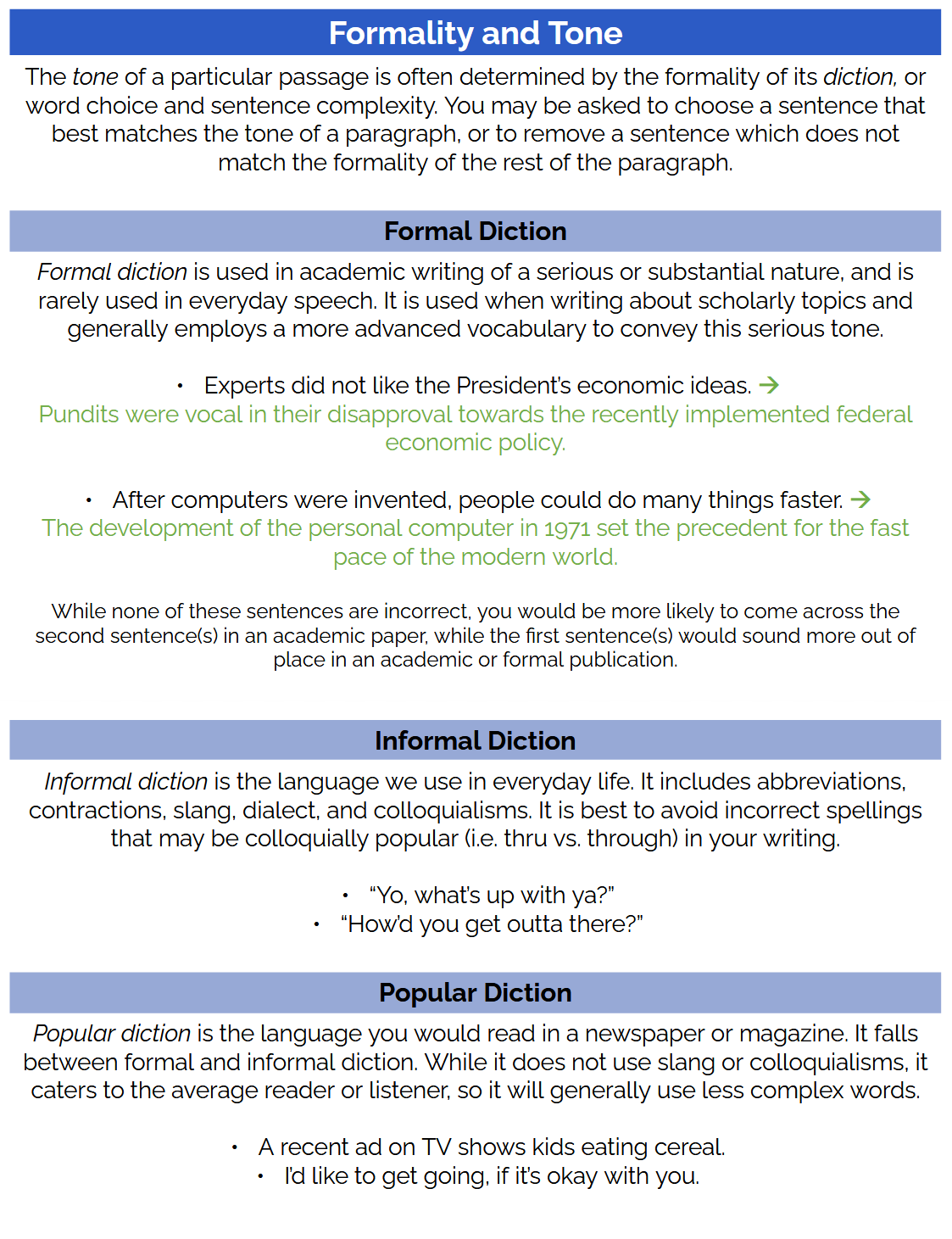
Practice with Piqosity: The Ultimate in ACT English Prep
Now that you have reviewed the essential ACT Grammar and Rhetoric, it’s time to get studying before your test date! Piqosity offers a wide range of ACT prep materials, perfect for both tutored and self-guided ACT practice:
- 12 full-length ACT Practice tests
- Over 70 concept lessons, including tutorial videos
- Real-time Score prediction (both Composite and for each subject)
- Interactive interface allowing teachers, tutors, or parents to assign and track student work
- Piqosity Virtual Tutor
- …And much more!
Piqosity provides personalized practice test questions that help you address and improve upon your weaker test subject areas. Our software is engineered to help students study smarter, not harder. The best part? You can try out all of Piqosity’s features with our free community account. When you’re ready to upgrade, Piqosity’s year-long accounts start at only $89. Plus, get a 10% off coupon just by signing up for our mailing list!
More Educational Resources by Piqosity:
- The Differences Between the ACT and SAT
- The Best Poems to Teach Figurative Language
- English Answer Explanations from 2019-2021 and 2015-2018 ACT Practice Tests
- Books to Increase Vocabulary for Each Grade Level
- Free ACT Official Practice Test PDFs and Answer Explanations
- Are ACT Scores Correlated to College Success?


